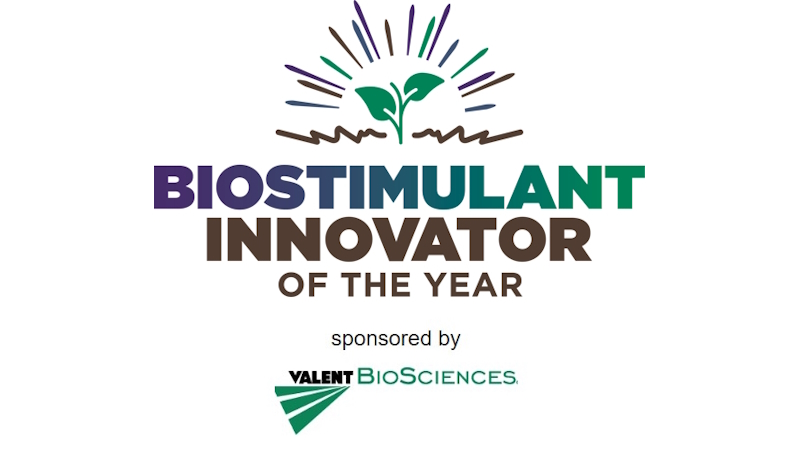Battelle Is Big Business

Contract Research Organization (CRO) Battelle has had its hands in many innovations over the last 77 years, from the creation of the Xerox machine and optical discs to a plethora of medical, technological, and energy-related breakthroughs. Since 1988, it has played a major role in agrochemical research, development, and registration, with agchem capabilities specialized by location: the Geneva office works with global registration and integrated residue program planning and management, regulatory affairs, human risk assessment, and agrochemical commercialization in Europe.
Ongar, UK, handles environmental risk assessment and modeling, e-fate lab studies, residue analysis, product characterization, and plant metabolism; while the Havant, UK, branch works with formulation development, characterization, and storage stability, as well as product characterization. The office in Columbus, Ohio, US, handles global registration program planning and management, mammalian toxicology, animal metabolism, biomonitoring, and residue analysis.
FCI: What types of concerns do clients share with you?
Dr. Cora Steginsky, vice president and director of Global AgriFood Business: Customers come to us for help to provide them with technical, regulatory, and industry knowledge to help them develop and register their products. They’re looking for an extension of their resources, or perhaps resources they don’t have in house, for example: toxicology, formulation development, environmental fate, regulatory affairs, etc. Most of the time, they come to us so that we can help them define the work program with the ultimate goal of submitting a dossier to register their product. We offer study design and program management, and two types of risk assessment: human risk and the environmental risk assessment. In addition to these core needs, some of our strategic customers come to us for new technology to help them with their product life cycle management or the real need for some kind of an extended resource — not just technical, but also in terms of funding. In some cases, Battelle is willing to co-invest in our customer’s products. We call that arrangement “risk/value sharing.”
Battelle pioneered the risk/value sharing concept in the agrochem industry, recognizing that all companies, not just the small- or medium-sized ones, on a given year have limited R&D resources and budgets. When all their products are being re-registered, that’s a huge feat, even for the biggest multinationals. We are willing to take the risk in that we don’t get repaid without recovering the funding that we provided if the product does not get registered. The value-sharing part is if the product gets registered and continues to be sold; then the investment we made on the product is paid by a small royalty from private sales. For the companies we work with, it helps them maintain more products in the portfolio, and for Battelle, it provides an additional source of income besides contract research.
FCI: Are there still many harmonization issues between markets?
Golda Fernandez, regulatory affairs manager: In some studies we prepare in the lab, there is some harmonization already — some guidelines which are internationally recognized. The risk assessment process is more specific to different situations. For 90% to 95% of the studies, we can adapt from one market to another.
Alistair Stalker, manager Battelle UK Ltd.: There are a set of guidelines that seem to be global; the so-called OECD guidelines. There was a time when studies designs were quite different, for example, in the US from in Europe. Companies that wanted to sell their products into both regions had to repeat them twice to make sure to be compliant in the two areas. [Also], countries which perhaps aren’t as well developed as Europe, the US, or Japan base their system on one that’s present in one of these three areas rather than invent their own. If you’ve done your studies and you’ve done your document preparation in a way that’s consistent with the authorities in the US, Europe, or Japan, there’s a good chance that they will be accepted.
FCI: What industry changes have you seen?
Dr. David Monson, director of client services US: Part of the landscape that’s changed is the investment it takes to come up with new chemistry to even develop. The number of development candidates has dropped off, and companies are inclined to only develop compounds that have the potential to become blockbusters. Because a blockbuster doesn’t come around every day, a large agchem company that is R&D based may not have sufficient work year to year to keep their fixed resources busy and productive. Since they don’t have the constant flow of new activities through the pipeline like they used to, they’ve cut back their fixed resources to a level they can maintain. They’re transferring that variability and effort to the contract labs which have the flexibility to take on programs, to take on multiple studies at a time, to be what they need to be. We’ve become a virtual laboratory for them.
Mark Bell, formulation development manager: There’s a trend now to work very closely with a smaller number of pre-selected companies that are contributing towards the research program of the main companies. We’re becoming integrated into their business plans.
FCI: How do changing regulations affect how a CRO helps its clients?
GF: Customers come to us with queries about how to handle these changes before the changes occur. With REACH (Registration, Evaluation, Authorisation and Restriction of Chemical substances), it’s trying to specifically figure out what requirements were going to be asked, what different software systems are going to be imposed for the submission.
CS: One thing that could affect the industry because of REACH is that there may be some components of an agchem formulation that we can no longer use.
MB: REACH may be agreed in principal, but the detail isn’t decided yet. So, it’s more of a threat out there, and it’s causing people to think about what molecules, compounds, and ingredients they’re going to support through REACH. Customers are coming to us indicating that “the next formulations that you develop for us, you need to use materials that are going to be available long term.” It starts a discussion with our suppliers to identify things which are at risk of not going through REACH, and those things, because they were big and successful and high volume are likely to survive. But it’s really a bit of guesswork involved at the moment — there isn’t a black and white list we can go to.
FCI: Can a CRO help find new options for dropped formulations?
DM: Even if an a.i. (active ingredient) may be safe, it may be that the old formulation is no longer doing what they want it to do, or the formulation and a.i. are off-patent and now getting pressure from generics, so companies are likely to want to innovate a new formulation.
MB: This is the bulk of what we’re doing right now. New formulations looking for new advantage, be it a generic company coming in or a patent-holder looking to protect themselves against a generic entry, post-patent defense strategy formulation is a big part of that. Something new, something different, a new story to tell, maybe to address old problems that they’ve lived with all the time they had patent protection, but now that they’re facing generic threat they suddenly realize that it’s time they did something about it. There’s a whole list of individual ingredients which had to be removed and now that they’re coming for more wholesale reformulation, they’re obviously keen to avoid the expense and aggravation of piecemeal replacement of ingredients in the future.
FCI: What can you offer to smaller-sized ag chemical companies?
CS: If you look at the top 20 companies in the agchem world, the top players are R&D based, but the medium and smaller players usually do not have the “R” component, with few development resources in house. So, CROs like Battelle that offer global integrated development and registrations services are able to help the small and medium companies because we have the resources to help them develop and register their products.
MB: We can allow them to punch above their weight.
CS: The development of the registration work program is a very important step in helping these companies. The knowledge of regulatory requirements both in Europe and the US are also very important, especially for emerging players. We are seeing more and more companies based in India, China, and Japan register products in Europe and the US. Most of these companies in Asia have been developing their products for local registration; now they’re also interested in Europe and US registration.
DM: Our Battelle capabilities in Europe are well-suited to taking the hand of an Indian company that doesn’t know all of the ins and outs of registration policy and practice in Europe, let alone all of the studies that are required. That is an expertise that we can provide on a consultative basis and then design the program that they need to run to obtain a registration, do the studies, and then help them put together — in part or its entirety — their dossier submission package.
MB: To help the smaller companies compete with the bigger ones, they’re very keen to work with CROs that have staff who have a long experience working with those big companies. They get a big company service when they have no chance of having that resource internally within themselves.





